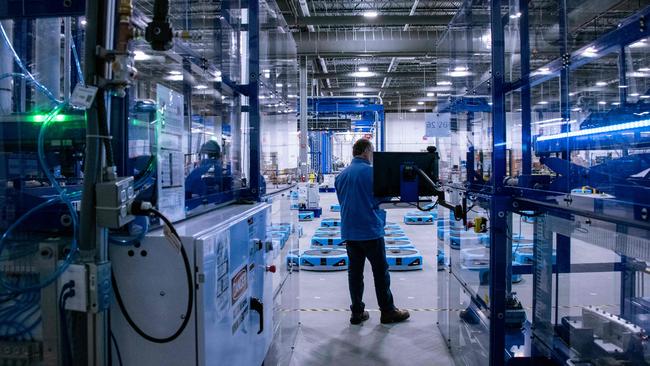Anthony Albanese’s new workplace regime holds back innovation and productivity growth, research shows
New bargaining system will hold back wage growth and future star companies, according to new research which highlights the looming ‘curse of the 20th employee’.

The Albanese government’s expansion of multi-employer bargaining threatens the future of innovative start-ups, according to new research that shows how the looming “curse of the 20th employee” could impair productivity and market dynamism.
Labor’s Secure Jobs, Better Pay law, which begins in July, will expose expanding firms to a new wage bargaining regime when they hire their 20th worker. Research based on microdata from the e61 Institute shows companies crossing this threshold are younger, more productive and drive a third of national job growth.
Authors Dan Andrews and Jack Buckley said the emergence of high-performance firms boosted productivity and wage growth, but multi-employer bargaining under the new act could disrupt the process.
When growing firms poach workers, they tend to do so by offering higher wages to employees at older, larger and less productive incumbents, supporting “productivity-enhancing reallocation”.
They argue the Fair Work Commission should take account of firm age, rather than size, when assessing so-called “single-interest claims” on whether workers should be subject to the same enterprise agreement.
“The FWC should consider the potential disincentives to young firm growth created by the new laws,” they said.
“Size-contingent labour laws in France – which disincentivise productive firms from expanding – provide a cautionary tale in this regard, with adverse consequences for GDP and the workers they were meant to protect.
“Given the pervasive decline in market dynamism over the past 20 years – which has suppressed both productivity and wage growth – policymakers should closely monitor the impacts of the new laws on firm dynamism and make legislative changes if necessary.”
The e61 study comes ahead of next week’s release by Jim Chalmers of the 1000-page five-yearly review of productivity by the Productivity Commission. The commission’s interim report said the extension of multi-employer bargaining could result in more strikes, supply chain disruptions, cascading wage pressures and damage to the economy.

A former head of structural policy analysis at the OECD and Treasury official, Mr Andrews told The Weekend Australian young high-growth companies, particularly those that engage in the “fragile process of experimentation, matter to the national interest as they disproportionately drive Australian job creation, productivity and wage growth by challenging tired incumbents”.
“These firms need flexibility to navigate their way through uncertain times, economic shocks and technological failures,” he said.
A review of the new law is scheduled within two years.
The e61 report said if the policy change “has created material barriers to firm growth, then the government should amend the legislation to make it more responsive to the needs of young high growth firms”.
“If this were to entail a shift in emphasis from ‘size contingent’ to ‘age contingent’ policy, then there is much scope for economists to inform the design of an age-based exemption threshold,” it said.
“The FWC could provide effective oversight, to ensure that firms do not simply ‘rebadge’ to appear younger than they are.”
The e61 report follows the scathing criticism of the new government by former PC chairman Gary Banks, who said Labor’s U-turn on industrial relations would entrench union power, lead to job losses and lower living standards.
The Treasurer said this week Australia needed to raise productivity to improve prosperity, with Labor’s energy, skills and social services policies the key channels to secure it.
Reserve Bank governor Philip Lowe has called for a greater collective focus on economic reform.
“Our lives are going to be much easier if productivity growth can pick up, and the last three years have not been good,” Dr Lowe said this week. “If output per hour worked isn’t rising, then real wages growth is going to be weak, real asset price growth is going to be weak, the fiscal challenges are going to be harder and the business environment is harder.”







To join the conversation, please log in. Don't have an account? Register
Join the conversation, you are commenting as Logout